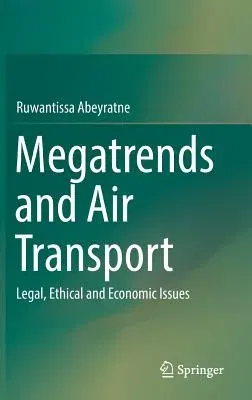This book discusses megatrends and subsequently applies them to the air
transport industry from a legal, ethical and economic perspective.
Starting with a detailed discussion on what these megatrends are, the
book provides an essential overview of megatrends and air transport,
including analytical discussions on how megatrends could affect basic
issues such as nationalism and sovereignty, market access in air
transport, and commercial space transport. It also delves into the
rights of the airline passenger as affected by megatrends. Further, the
book analyses a broad range of topics, including: the digital
transformation of air transport; technology and air transport; robotic
pilots and their legal ramifications; the human-robot interface and the
law with focus on the pilot; cognitive computing; and issues of
empowerment and connectivity. It discusses in detail United Nations
initiatives and initiatives of the International Civil Aviation
Organization, considering aspects such as: the new world order; e-trends
and air transport; apps that make air travel easier; and apps designed
to help the aviation authorities. Further topics include artificial
intelligence and air transport and related technical, ethical and
economic issues, as well as a legal inquiry into manufacturer's defects;
design defects; and liability for failure to warn of defects. Questions
are posed and answers provided on the effects of artificial intelligence
and legal issues stemming from its use in air transport. Two major
discussions follow on millennials and air transport, and on the Internet
of everything as related to air transport. The conclusion ties in
megatrends with air transport and offers the industry a way forward for
adapting to these trends.

